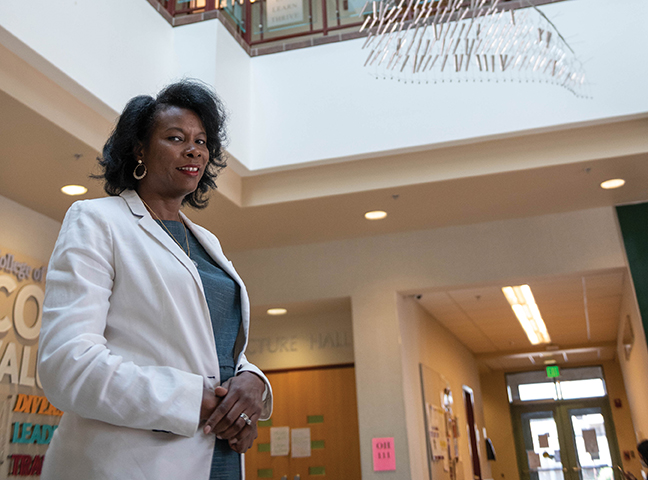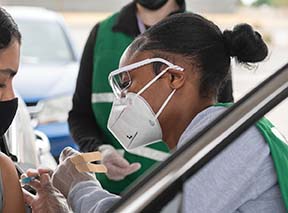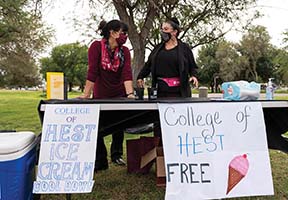When NMSU’s Board of Regents unanimously voted in May 2021 to approve a proposal to combine the College of Education, the College of Health and Social Services and the Department of Sociology into new college named the College of Health, Education and Social Transformation, many students expressed concern about how the change would affect their studies.
Administrators continue to seek feedback on the transition, which took effect July 1, 2021, but say the new college will attract new opportunities for students, faculty and staff with increased collaboration for research, teaching and service.
“At this time, students have realized that the merger has not directly impacted their studies,” says College of HEST interim Dean Henrietta Pichon, formerly the interim dean of the College of Education. “Moving forward, we plan to host additional listening sessions that specifically allow for more of an exchange with undergraduate and graduate students to explore who we are, what we want to do, how we want to do it and why.”
The proposal was first introduced in fall 2020. After NMSU Provost Carol Parker met with college personnel in the impacted areas, she convened an advisory task force, which hosted listening sessions and wrote recommendations. The deans from the two colleges also met with alumni and community advisory groups.
Regents voted to approve the proposal, and stipulated that an advisory committee be created, consisting of administrators, students, staff and faculty, to create an organizational chart for the new college and create a job description for the college’s dean. The board will receive regular updates on the progress made in implementing the new college.
Other universities that have combined health and education in one college include Utah State University, University of Arkansas, University of Idaho and Montana State University, which are all land-grant universities like NMSU.
Now that the new college is in place, NMSU can create a focal point for the university’s social mobility, social justice and social transformation programs.
“The opportunities are limitless,” Pichon says, adding that the new collaborations formed within the new college will potentially create new majors. “This is what we hope to do: supplement some of the areas that have become overspecialized and create more inter- and trans-disciplinary programs that better address current and future needs for our community, state and country. Additionally, we hope to focus on global demands and how to work strategically with our bordering countries and beyond.”
Over summer 2021, NMSU launched a committee to recruit a permanent dean for the new college. Parker says she believes many strong candidates will be interested in this position because of the unique opportunity they will have to shape the new transdisciplinary college.
Until then, Pichon has been busy listening to input from students, faculty and staff; overseeing consolidation of the dean’s offices; merging budgets and research enterprises; and gathering information regarding a space study on options to expand the School of Nursing, kinesiology and STEM Outreach Center offices, among other physical offices.
Pichon says the college also has been able to hire additional faculty and staff in critical areas to assist with matriculation.
For more information about the new college’s proposal, including frequently asked questions and an archive of the town hall sessions, visit provost.nmsu.edu/provost-office-projects/hes/index.html.




Dove Hall, Room 212
305 N. Horseshoe Drive
Las Cruces, NM 88003